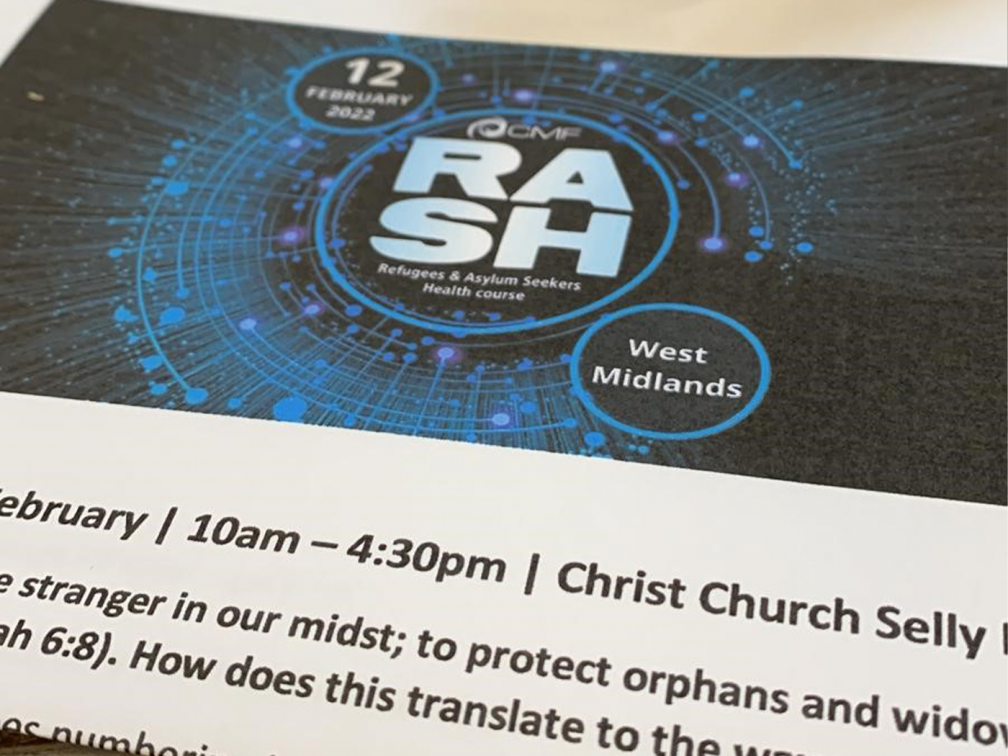Okay so I know technically it’s only halfway through the year, but I already recognise and appreciate the opportunities which are being thrown my way. From asylum policy and cases to environmental advocacy there are so many opportunities to grow.
Last weekend was just one of the amazing opportunities I’ve had to expand my understanding of the situation refugees and asylum seekers face in the UK health system and therefore improve my practice. On the 13th February, myself and Tobi, the other Faith in Action Volunteer, made our way to Christ Church in Selly Oak, Birmingham for a day of training on the health service for refugees run by the Christian Medical Foundation, CMF. Aimed mostly at staff from the health sector, including GPs and nurses, the day revolved around how we can best support vulnerable asylum seekers, refugees, and migrants in our places of work. From face to face interactions to political advocacy, the day was packed full of incredible speakers and the place was filled with like-minded individuals.
From start to end we encountered presentations, sessions and Q&As on common presenting problems, barriers to health, Modern Day Slavery and Trafficking, women and children and how the hostile environment can compound trauma and pose difficulties to ‘true’ integration. It made me consider deeply how with all this scientific evidence, especially those linking extended waiting times to extremism, how the government can continue to pursue the Hostile Environment Policy!
The most poignant part of the day for me was hearing two asylum stories, very different at first glance, but both highlighting the importance of friendship in their journey. The first encounter was a doctor from Afghanistan who told us about how he found God and his faith moments before he expected to be deported, and his 7-year journey back to work. He talked about how he had gone from being a well-known consultant in Afghanistan for many years to jumping through hoops to even become a registrar (type of junior doctor) in the UK.
The other, was told by a refugee who had substantial surgery and critical health care needs within her first 6 months in the UK and had to cope with the stigma of having a stoma bag for a year. She spoke with tears in her eyes about the loneliness she faced, the language barrier, the racism on the ward from health professionals, and her relationship with her family who had lost her brother at the time. Her pain and trauma spoke to each individual in the room and brought to life the theory we had been discussing earlier in the day. Supported by a friend from church, we could only admire her bravery and honesty in sharing her story with us.
The two stories, though miles from each other, spoke of the importance of friendship, sensitivity and holistic care: joining the physical ailments to the mental, to the social and cultural. It truly is a calling to connect, to accompany and to demand better for those in the same position, to defy the Government’s hostility and unite sectors on the ground to create a supportive and compassionate welcome for those arriving on our shore.
For fellow Faith in Action Volunteer, Tobi Oyedele “What I took away was the importance of prioritising the overall health of refugees and asylum seekers. Laying direct and intentional focus on their mental health, physical health, emotional health etc. This means pushing policy to put funding into the health sector and ensuring a role is created specifically for this.”

